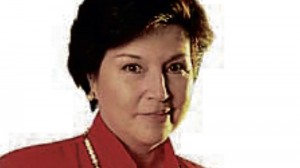Gov’t support for artists’ welfare sought
More than awards and tributes, artists need government support and attention.
The recent passing of Comedy King Dolphy and three other artists from the theater and movie worlds (novelist-scriptwriter Edgardo Reyes, theater director Tony Espejo and actor-writer-filmmaker Mario O’Hara) has brought to the fore an urgent issue: The institutionalization of a more expansive welfare and health care system for cultural workers.
It has become common to encounter pleas on Facebook and other social networking sites for certain ailing artists who need financial and medical aid.
The obvious question remains unanswered: Who is taking care of our nation’s artists?
Stage and movie actress Kalila Aguilos recalled a meeting with government representatives: “We were told point-blank by an official that the arts is not the government’s priority.”
Article continues after this advertisementConfronted by institutional apathy, the artists themselves have decided to take matters into their own hands.
Article continues after this advertisementTaking action
Last year, Aguilos and her colleagues set up the Theater Actors Guild (TAG) to protect the rights and promote the interests of stage thespians.
TAG is only the latest in a steady stream of organizations that have taken up artists’ welfare as an advocacy.
In 1974, movie industry leaders Joseph Estrada, Fernando Poe Jr. and Dolphy set up Mowelfund (Movie Workers Welfare Foundation, Inc.).
After almost four decades since its founding, its current head Boots Anson-Roa will be the first to admit that Mowelfund still needs all the help it can get, for it to effectively serve its 2,700 members.
Roa said: “We need additional sources of funding. Our regular source (from the Metro Manila Film Festival grosses) was slashed by more than half. As of now, we organize a lot of fundraising projects to keep up with our members’ needs.”
In 2004, filmmakers Joel Lamangan, Mel Chionglo and friends formed the Nagkakaisang Manggagawa ng Pelikulang Pilipino, an association that offers educational and housing programs to marginalized movie workers.
Other groups from the arts and entertainment spheres have set up their own welfare systems as well to address this growing concern of a graying industry.
Health insurance
In 1986, singers put up the Organisasyon ng Pilipinong Mang-aawit (OPM) to focus on their own community. (OPM helped late singer Didith Reyes meet her hospitalization needs.)
“We now have health insurance coverage for all members,” said singer and OPM head Ogie Alcasid.
Nanding Josef, actor and artistic director of Tanghalang Pilipino, told the Inquirer that he and several concerned colleagues founded the Artists Welfare Project, Inc. (AWPI) in 2007.
“The idea for AWPI started when a number of theater directors from the University of the Philippines fell ill four years ago,” Josef recalled. “We kept ‘passing the hat.’ So we decided to form a group that would take care of our colleagues’ emergency needs.”
Josef is president and fellow actor Ronnie Lazaro is vice president of
AWPI. “Apart from actors, AWPI also hopes to cover other artistic disciplines like the visual arts and literature,” said Josef.
He added that through its various fund-raising programs, AWPI has raised P1.8 million.
“We realize that our resources could be easily depleted if just one or two of our members would fall ill,” Josef explained. “As of now, we are formulating policies, with the help of our chair Karina Constantino-David, on how to best distribute our welfare benefits to our members, which now number over 200.”
Josef hopes to establish insurance, health, educational and housing programs for AWPI members, too.
Josef commends the efforts of Aguilos and TAG in continuing the struggle among younger artists.
“We are passing the torch … Our batch is already in the departure area, so to speak,” said Josef.
Aguilos explained that TAG is presently looking into the possibility of enrolling its members in the national health insurance program PhilHealth.
“Artists are freelancers. We want to provide to our members the same healthcare benefits that regular employees get,” clarified Aguilos, who is the president of TAG.
Support from colleagues
One good thing about artists is that they swiftly rally behind any colleague who needs help. “We are always ready to chip in. Unfortunately, artists are not rich. Every year, at least one artist is bound to get sick. We keep doing fund-raisers, but they’re not enough. We need to systematize everything,” Aguilos said.
Menchu Lauchengco-Yulo, actress-director and associate artistic director of Repertory Philippines, is disheartened by society’s general neglect of artists.
“We should never forget our artists,” Yulo asserted. “A lot of our industries are pro-young … youth-obsessed. The more seasoned artists are pushed aside.”
In Repertory, Yulo said, they’ve made it a point to take care of their own. “We set aside a fund to take care of our members’ hospitalization needs.”
Actors need to take care of their own because aid is not forthcoming from other sources, particularly the government. “We get no support at all. For example, when we meet with government agencies, so that they could promote our shows, we are often told that we’re the last in the list of priorities. Our country has bigger problems. It’s really difficult,” said Yulo.
“It’s sad,” internationally acclaimed singer-actress Lea Salonga described the situation.
Salonga, who will appear with Yulo in Atlantis Productions’ staging of “God of Carnage,” told the Inquirer: “In the United States, there’s an Actors Fund that’s earmarked specifically for actors who need assistance. TAG is trying to set up a similar system here.”
(According to its website, The Actors Fund is a nonprofit human services organization that helps all professionals in the performing arts and entertainment.)
Aguilos related that TAG is now studying the feasibility of tapping into the Equity pie. “The share from the Equity will automatically go to TAG’s healthcare program,” Aguilos said.
Performers’ equity rights
In 1987, Aguilos recounted, the Performers’ Equity Rights Program was instituted.
According to Elmar Ingles, OPM executive director, the Equity Rights Program was envisioned as “a government-private initiative which seeks to provide assistance to local performers and producers whose livelihood and practice of profession are displaced by the influx of foreign productions”—whether concerts or theatrical productions.
Alcasid explained that OPM had entered into a memorandum of agreement with the Asosasyon ng mga Musikong Pilipino (AMP) and the Bureau of Immigration toward this end.
“The MOA was originally signed in 1989 and was renewed in 2004,” recalled Ingles, adding that “OPM collects from foreign singers … AMP from foreign musicians. In reality, it’s the producers that pay. Philstage (Philippine Legitimate Stage Artists Group, Inc.) represents local performing arts companies. TAG is not yet included in the MOA but will soon become [a part of it].”
Josef pointed out that the government should not neglect artists. “By focusing on economic policies and neglecting the arts … We may become rich financially, but we may also lose our soul as a nation.”
Josef was saddened that AWPI wasn’t able to assist Espejo, O’Hara and, earlier, the late actor Jose Mari Avellana, in their hour of need.
He explained: “They were not AWPI members. Perhaps the younger generation will be the ones who will benefit from AWPI’s work.”
Josef, however, pointed out that Tanghalang Pilipino would pay tribute to O’Hara by staging his play (“Stageshow”) in November at the Cultural Center of the Philippines.
“Mario wrote a play which was coincidentally about aging performers from the Manila Grand Opera House and Clover Theater,” Josef related. “It’s both funny and poignant and captures the painful truth: Artists who have contributed so much to society are often forgotten and neglected when they grow older.”



